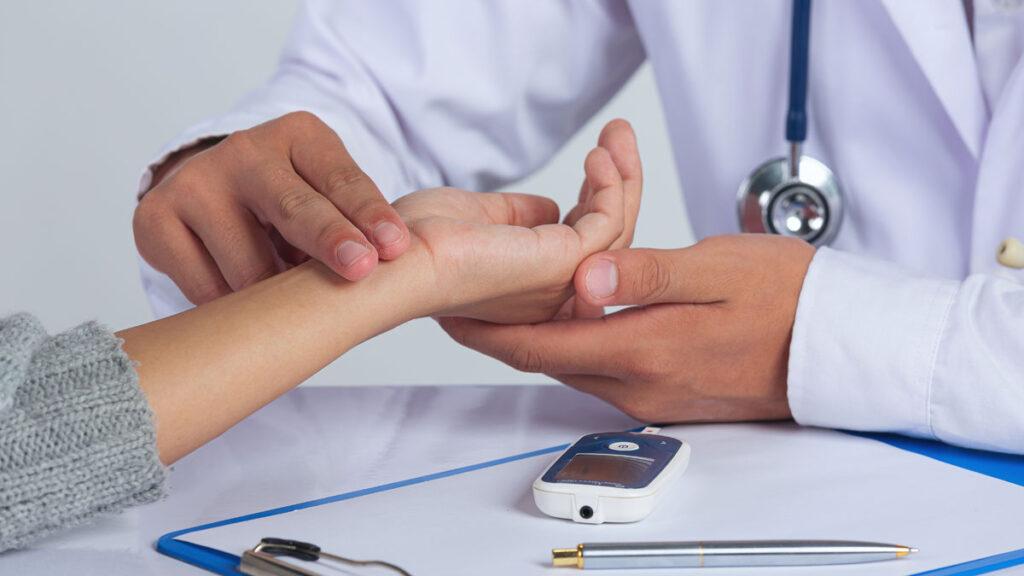
Importance Of Regular and Basic Health Checkups
When was the last time you saw your doctor for a routine checkup? If you’re like most busy adults, it may have been longer than you’d like to admit. We tend to prioritize caring for illnesses and injuries when they arise, while preventive care often falls by the wayside. However, regular basic health checkups and screenings are one of the most valuable, yet unnoticed elements for maintaining your health.
Getting routine wellness exams allows doctors to establish your baseline vital statistics, catch issues in initial stages, prevent future complications from conditions, and equip you with knowledge to make proactive lifestyle choices.
Even if you feel you’re in the picture of good health, don’t wait for your body to send you distress signals before seeking preventive care. In this blog post, we will discuss why regular health checkups are important.
Table of Contents
ToggleWhy are Regular Health Checkups Important?
Getting regular wellness exams and lab tests can literally save your life in some cases. Here are some of the key reasons that health checkups are so vital:
- Detect Issues Early: Regular checkups allow doctors to detect and address issues before they turn into bigger health problems. Many major health conditions don’t have symptoms until they progress, for example heart disease, diabetes, and cancer.
- Prevent Complications: By catching diseases early, you prevent future complications and symptoms. Managing high blood pressure early prevents heart attack, stroke and kidney failure down the road for example.
- Establish Care: Having a relationship with a primary care provider that knows your medical history well can help you get the best care whenever issues pop up between checkups. They can better detect subtle changes in your health over time.
- Establish a Baseline: Checkups give doctors a snapshot of your “normal” numbers like weight, blood pressure and lab test results. Having a set baseline makes it easier to spot unhealthy changes at future appointments.
- Update Prescriptions: Regular appointments allow doctors to update and adjust prescriptions and other treatments so that you’re getting the most effective care. This includes checking for interactions between medications.

Types of Health Check-Ups
There are a variety of different health checkups that doctors may recommend depending on your age, gender, health conditions, family history, and other factors. Common check ups include:
- Routine Physical Exams: Assess your overall health status, risk factors, prescription needs, and provide preventive health advice.
- Well Woman & Well Man Exams: Gender-specific screenings like pap smears, breast exams, prostate exams, reproductive health assessments, etc.
- Cancer Screenings: Such as mammograms, colonoscopies, lung cancer screenings, skin checks, and other cancer-specific tests especially for those at higher risk.
- Heart Disease Screenings: Checks for blood pressure, cholesterol, heart disease risk factors, and examination of heart sounds.
- Bone Density Scans: To assess for risk of conditions like osteoporosis, which causes bones to become weak and brittle over time.
- Blood Work: To analyse cholesterol, signs of infection, kidney & liver function, nutrient levels, blood sugar, thyroid function, and more.
How Often Should You Get a Checkup?
For adults, it’s recommended to get a full medical examination and preventive screening at least once a year. If you have chronic conditions, are overweight or a smoker, your doctor may want to see you more than annually. People over 65 should see their physician every 6 months.
Ensure your well-being by scheduling a regular health checkup at Hale Clinics, renowned as one of the best Health Checkup Clinics in Mohali.
What to Do Before a Checkup
To make the most out of your next medical checkup, be proactive by:
- Listing any symptoms or health concerns you want to discuss
- Bringing a written list of all medications and supplements you take
- Researching family history of disease
- Preparing questions to ask your doctor during the appointment
Additionally, follow all pre-appointment directions provided by your doctor’s office. For instance, you may need to fast for bloodwork or stop taking certain medications beforehand. Being prepared allows your appointment to be as thorough and helpful as possible!
Conclusion
Getting preventive healthcare lets you take control of your wellbeing. Detecting issues early on gives you the best shot at effective treatment and health management. Skipped or delayed checkups put you at risk of finding out about a condition when it’s advanced or presents life-threatening complications. Regular health checkups are one of the smartest health investments you can make. If you have any concerns about your health, schedule an appointment at Hale Clinics, acclaimed as one of the Best Multi Specialty Clinics in Mohali.
FAQs
Q1. Why are regular health checkups important?
Ans. Regular health checkups are crucial for detecting any potential health issues early on, allowing for timely intervention and treatment.
Q2. How often should I get a health checkup?
Ans. The frequency of health checkups depends on various factors such as age, medical history, and risk factors. It’s recommended to consult with your healthcare provider to determine the appropriate schedule for you.
Q3. What are the benefits of regular health checkups?
Ans. Regular health checkups can help in early detection and prevention of diseases, promote overall well-being, and provide an opportunity for healthcare professionals to offer guidance on healthy lifestyle choices.
Q4. What tests are typically included in a basic health checkup?
Ans. Basic health checkups usually include measurements of vital signs like blood pressure, heart rate, and body mass index (BMI), as well as blood tests to check cholesterol levels, blood sugar levels, and other important markers of health.
Q5. Are health checkups necessary if I feel healthy?
Ans. Yes, regular health checkups are still important even if you feel healthy. Many health conditions can develop without noticeable symptoms, and early detection through checkups can significantly improve treatment outcomes.
Q6. Can health checkups help prevent serious health conditions?
Ans. Yes, regular health checkups play a crucial role in preventing serious health conditions by identifying risk factors early on and allowing for interventions such as lifestyle changes, medication, or other treatments.
